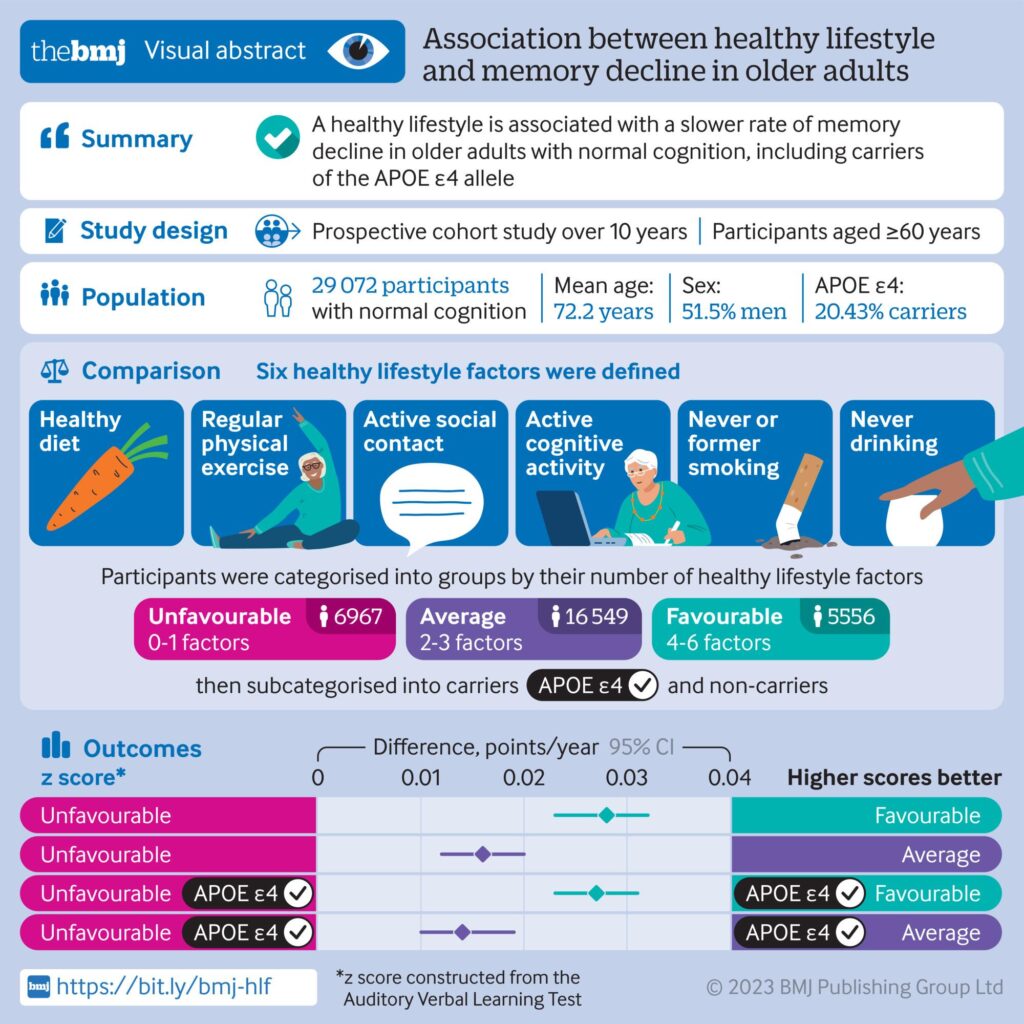Are you concerned about dementia or Alzheimer’s disease as you get older? The number of people affected by memory loss is expected to skyrocket with the aging global population. While we don’t yet have a cure for Alzheimer’s, the good news is that lifestyle changes can aid in prevention, even for people with a higher genetic chance of developing the disease.
The China Cognition and Aging Study (China COAST) is a large, prospective clinical trial conducted in China. They enrolled over 29,000 participants at an average age of 72 years and studied them for 10 years. The scientists published their findings on the association between healthy lifestyle and memory decline in The BMJ (British Medical Journal). The study included individuals who were carriers of the APOE ε4 allele, which is a risk factor gene for developing Alzheimer’s disease. The lifestyle factors included:
- Healthy diet — eating at least 7 of 12 eligible food items such as fruit, vegetables, fish, eggs, oil
- Regular physical exercise (≥150 minutes of moderate intensity or ≥75 minutes of vigorous intensity, per week)
- Active social contact (≥twice per week)
- Active cognitive activity (≥twice per week)
- Never (or previously) smoked
- Never drinking alcohol
Participants in the study were categorized into “unfavorable,” “average,” or “favorable” groups based on their scores for the lifestyle factors, and also whether they were carriers of the APOE ε4 gene. Memory function was assessed using the World Health Organization/University of California-Los Angeles Auditory Verbal Learning Test, and global cognition was assessed with the Mini-Mental State Examination. The scientists reported that those in the “favorable” and “average” lifestyle groups had slower memory decline than those with unfavorable lifestyles. This same pattern emerged even for individuals with the APOE ε4 allele.
This study clearly shows that choosing healthier habits limits the chance that you may experience memory decline, and is good news if you have a genetic predisposition to dementia or Alzheimer’s disease. And good lifestyle practices are also related to a host of other health benefits like lower risk of cardiovascular disease, diabetes, high blood pressure, and obesity.
For more information on maintaining a healthy brain, check out the resources from the National Council on Aging.
The Parsemus Foundation has supported studies that aim to identify methods of preventing dementia and Alzheimer’s disease, including testosterone, DHA, and lithium supplementations.




